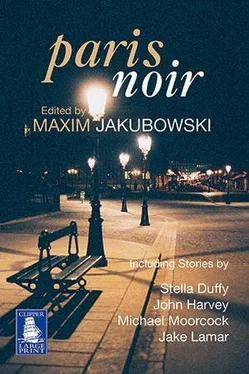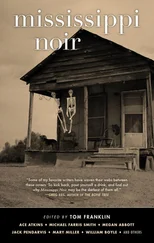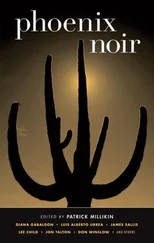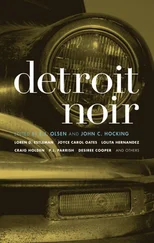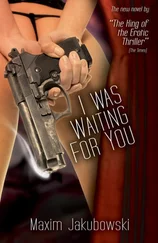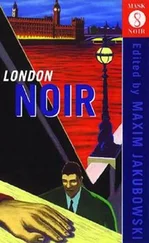Maxim Jakubowski - Paris Noir
Здесь есть возможность читать онлайн «Maxim Jakubowski - Paris Noir» весь текст электронной книги совершенно бесплатно (целиком полную версию без сокращений). В некоторых случаях можно слушать аудио, скачать через торрент в формате fb2 и присутствует краткое содержание. Жанр: Детектив, на английском языке. Описание произведения, (предисловие) а так же отзывы посетителей доступны на портале библиотеки ЛибКат.
- Название:Paris Noir
- Автор:
- Жанр:
- Год:неизвестен
- ISBN:нет данных
- Рейтинг книги:3 / 5. Голосов: 1
-
Избранное:Добавить в избранное
- Отзывы:
-
Ваша оценка:
- 60
- 1
- 2
- 3
- 4
- 5
Paris Noir: краткое содержание, описание и аннотация
Предлагаем к чтению аннотацию, описание, краткое содержание или предисловие (зависит от того, что написал сам автор книги «Paris Noir»). Если вы не нашли необходимую информацию о книге — напишите в комментариях, мы постараемся отыскать её.
Edited by Maxim Jakubowski, the stories range from quietly menacing to spectacularly violent, and include contributions from some of the most famous crime writers from both sides of the Atlantic, as well as the other side of the Channel.
Paris Noir — читать онлайн бесплатно полную книгу (весь текст) целиком
Ниже представлен текст книги, разбитый по страницам. Система сохранения места последней прочитанной страницы, позволяет с удобством читать онлайн бесплатно книгу «Paris Noir», без необходимости каждый раз заново искать на чём Вы остановились. Поставьте закладку, и сможете в любой момент перейти на страницу, на которой закончили чтение.
Интервал:
Закладка:
The fire brigade arrives, sirens wailing, three fire engines, just as the roof over the staircase collapses. They extend their ladders, evacuate the inhabitants, attack the flames. Four more engines arrive. Then the police show up. Two police stations have been mobilised, plus a brigade of riot police. The area is cordoned off. Nobody’s allowed near. Not onlookers, friends or family. Orders are clear: avoid any demonstration of support for the victims, no breaches of the peace. All the uninjured squatters are herded into big buses: immediate removal to a municipal sports centre placed at the disposal of the disaster victims. The dead are taken to the morgues in ambulances and the burned and the wounded to various hospitals, as and when the fire-fighters are able to drag them out of the blaze. Some people manage to slip through the police cordon and run off across the waste ground.
By 6 a.m., in the building where the fire’s still smouldering, only a few bodies are left, along with the fire-fighters still battling the flames and drowning what’s left of the squat under gallons of water. According to the police bulletin, 123 people were living in this squat, seven are dead and fifteen others injured, three of whom are critical; 101 people are in the municipal sports centre where identity checks are being carried out. The plan is to escort any illegal immigrants to the border and rehouse those whose papers are in order. The investigation should establish whether the fire is of criminal or accidental origin.
TWO YEARS LATER
A twelve-storey steel and glass structure hugs the curve of the A86 motorway slip road, which has been concreted over and where at this very moment a garden is being laid out. The façade overlooking the canal has reflective glass echoing the changing hues of the weather, blue sky, clouds, storms, in an arresting mirror effect. A vast paved esplanade stretches down to the canal. In the centre is a circular, white stone fountain with geometric sculptures. On either side, a row of lime trees in front of two multilevel apartment blocks. Terraced gardens that will soon be verdant slope down to the canal. An old-fashioned bandstand has been installed on the quayside, which has been turned into a promenade.
It’s summer, the weather’s very hot, the whole complex is still empty, a few finishing touches yet to be added. The Bâtimo construction company is holding a party to celebrate the completion of the works before the August holidays. White marquees have been set up along the canal and a throng of men in dark suits and a few women in light dresses are crowded around the buffers piled with refreshments and champagne. Entrepreneurs and politicians big and small, of all persuasions, mingle and rub shoulders.
When the mayor arrived, flanked by his deputy, he was a little tense. The tragedy that took place here two years ago is on everyone’s mind, he was thinking. Granted, the police investigation concluded it was an accident following a fight between dealers who had broken into the basement of the squat. But eight dead… Granted, the city council rehoused all the legal immigrants. But not locally, not together, a long way from Paris… and the illegal immigrants were deported before they’d had time to recover. Granted, some immigrant support organisations were invited to this inauguration of the new canal district. But only those with close ties to the mayor’s office. What if the others, the ones the police repressed with some brutality during the fire and afterwards, were to decide to come and spoil the party… Then he relaxes a little more with each glass of champagne. And whisky. After all, the fire, the dead, you’re probably the only one still thinking about it. Too sensitive…
Marchal, the CEO of Bâtimo, has invited Louvois, the big boss of the construction group that bears his name and which owns Bâtimo. The big boss hasn’t come, but he’s sent his son. And Marchal is blowing his own trumpet.
‘With this scheme completed, we’ll be pitching to the mayor and the regional authorities for the renovation of the entire canal area. We’re the experts in mixed business and residential developments. This is the way forward.’
The mayor, who’s perked up, glass in hand, explains to the Paris and regional authorities: ‘We need to change the image of social housing. There’s a high demand for quality social housing here. Among out council employees alone…’
Louvois junior gazes after a tubby man in a navy blue suit, panting and sweating profusely, who’s drinking too much, steering between groups, always on his own. A man who looks completely out of place. He leans towards Marchal. ‘Who’s that guy? Do you know him?’
‘Yes. Alfred Poupon, a property agent. He’s got an extraordinary nose for sniffing out new sites. He’s the one who discovered this one, under the most difficult circumstances.’ A pause. ‘The old buildings were occupied, and the mayor wouldn’t hear of expulsions, of course.’ A fresh silence, no questions. ‘He made a lot of money from the deal, but he’s a sad case. Everything he makes, he loses on the horses.’
Translation © Lulu Norman and Ros Schwartz
L’AMÉRICAINE by MAXIM JAKUBOWSKI
Cornelia took the RER from Roissy-Charles de Gaulle. A taxi would have been easier and more relaxed after the seven-hour plane journey, but she knew she had to remain as anonymous as possible. Cab drivers have a bad habit of remembering tall, lanky blondes, particularly so those who did not wish to engage in needless conversation and reveal whether it was their first time in Paris or was she coming here on holiday?
Because she knew there were countless CCTV cameras sprinkled across the airport and the train terminal, she had quickly changed outfits in a somewhat insalubrious toilet shortly after picking up her suitcase from the luggage carousel, and by the time she walked on to the RER train, she now had a grey scarf obscuring her blonde curls and wore a different outfit altogether from the flight. It was far from foolproof, but at least would serve its purpose in muddying the waters in the eventuality of a later, thorough investigation.
The commuters on the train to Paris looked grey and tired, wage slaves on their mindless journey to work or elsewhere. A couple of teenage Arab kids listening to rap – or was it hip hop – on their iPods glanced at her repeatedly, but her indifference soon got the better of them and she wasn’t bothered until the Luxembourg Gardens stop where she got off.
She had booked herself into a small hotel there on the Internet the previous day. She checked herself in under the false name on her spare passport, a Canadian one she’d seldom used before. She took a shower and relaxed before taking the lift to the lobby around lunch hour, and noticed someone new had taken over at the registration desk from the young woman who’d earlier checked her in. She calmly walked back to her room and stuffed some clothes into a tote bag and went down to the lobby again and left the hotel. Fifteen minutes later, she registered at another hotel, near the place de l’Odéon, this time under her real name. This booking she’d made by phone from New York a week or so before. She was now the proud tenant of two separate hotel rooms under two separate names and nationalities. Both rooms were noisy and looked out onto busy streets, but that was Paris, and anyway she wasn’t here for a spot of tourism. This was work. She settled in the new room, took a nap, and just before the evening walked out and took a cab to the place de l’Opéra. There was a thin jiffy bag waiting for her at the American Express Poste Restante. Here, she retrieved the key she had purchased back in Brooklyn Beach from a Russian connection she occasionally used. She then caught another taxi to the Gare du Nord, where she located the left luggage locker which the key opened. The package was anonymous and not too bulky. She picked up a copy of Libération and casually wrapped it around the bundle she had just retrieved from the locker and walked down the train station stairs to the Métro and took the Porte d’Orléans line back to Odéon. In the room, she unwrapped the package and weighed the Sig Sauer in her hand. Her favourite gun. Perfect.
Читать дальшеИнтервал:
Закладка:
Похожие книги на «Paris Noir»
Представляем Вашему вниманию похожие книги на «Paris Noir» списком для выбора. Мы отобрали схожую по названию и смыслу литературу в надежде предоставить читателям больше вариантов отыскать новые, интересные, ещё непрочитанные произведения.
Обсуждение, отзывы о книге «Paris Noir» и просто собственные мнения читателей. Оставьте ваши комментарии, напишите, что Вы думаете о произведении, его смысле или главных героях. Укажите что конкретно понравилось, а что нет, и почему Вы так считаете.
